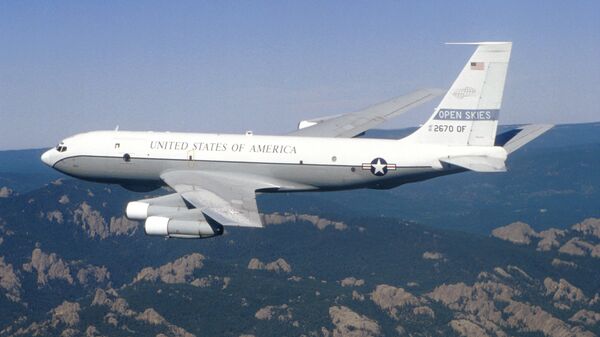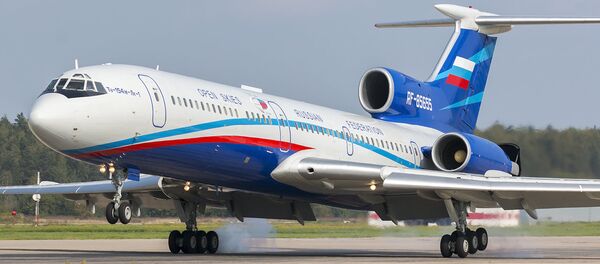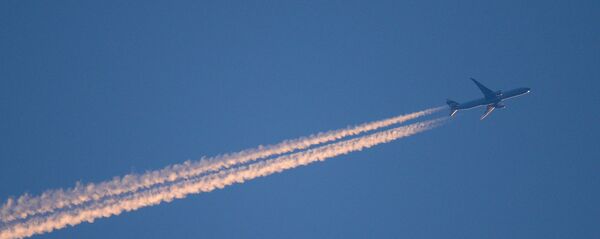WASHINGTON (Sputnik) — On Wednesday, Sputnik reported a source as saying that Russia would limit the number of airfields that can be used by US surveillance aircraft within the framework of the Open Skies Treaty starting January 1.
The source described the Russian move as a "mirror response" to the US-announced measures against Russia, which are also planned to be introduced next January, including plans to close the airspace over the states of Alaska and Hawaii to Russian observers and limit the range of flights.
The Treaty on Open Skies entered into force on January 1, 2002, and 34 states are party to the agreement. It establishes a program of unarmed aerial surveillance flights over the entire territory of its participants.
OPEN SKIES TREATY SPAT REFLECTS DETERIORATING STATE OF US-RUSSIA RELATIONS
"This is tit-for-tat posturing or background music in the ongoing drift to a new Cold War," he said.
Spinney, who retired after 30 years as a US military analyst, pointed out that the widespread use of powerful reconnaissance satellites by both Russia and the United States made the practical effect of restricting aircraft overflights of both countries minimal.
"It seems to me that coverage is modest and the effect of basing restrictions is more cosmetic that decisive," he said.
The United States only operated a handful of such flights in any case, Spinney noted.
"It is impossible to say how a limit on airfields will limit coverage by US flights, which are few in number in any case," he said.
Moreover, the United States only operated a handful of aircraft for limited use in any case, Spinney recalled.
"I understand that we are using OC-135s, which are converted Boeing WC-135 aircraft, based on the vintage Boeing 707, but with more fuel efficient engines … they have long range — 3,500 nautical miles (6,482 km or 4,027 regular miles)," he said.
The United States only operated a very small force of OC-135s with which to enforce the Open Skies Treaty, Spinney added.
"Only three of these aircraft are operational with a fourth one in flyable storage. So it seems to me that coverage is modest and the effect of basing restrictions is more cosmetic that decisive," he said.
Improved satellite surveillance technology meant that implementing the full provisions of the 16-year-old Open Skies Treaty were of less importance, Spinney explained.
"With satellite coverage and standoff surveillance, it doubt if any restrictions on over flights have much meaning," he said.
US, RUSSIA FACE OFF IN MUTUAL DISTRUST IN AIRFIELDS ROW
Retired US Army Colonel Doug Macgregor agreed that the latest spat over limiting the implementation of the Open Skies Treaty was symptomatic of the wider problems afflicting US-Russian relations.
"These actions reflect the condition of mutual distrust and contempt that has returned to Russo-American relations," Macgregor, who holds a doctoral degree in international relations from the US Military Academy at West Point, said.
"Sadly, the potential for imprudent and precipitous US military action on the Korean Peninsula combined with the Russian military buildup in proximity to the Donbass and Crimea suggests we can expect relations to worsen, not improve," he said.
Earlier, Russian Deputy Foreign Minister Sergey Ryabkov said that Moscow would respond to US restrictions on the Open Skies Treaty, noting however that the treaty itself should be preserved.





